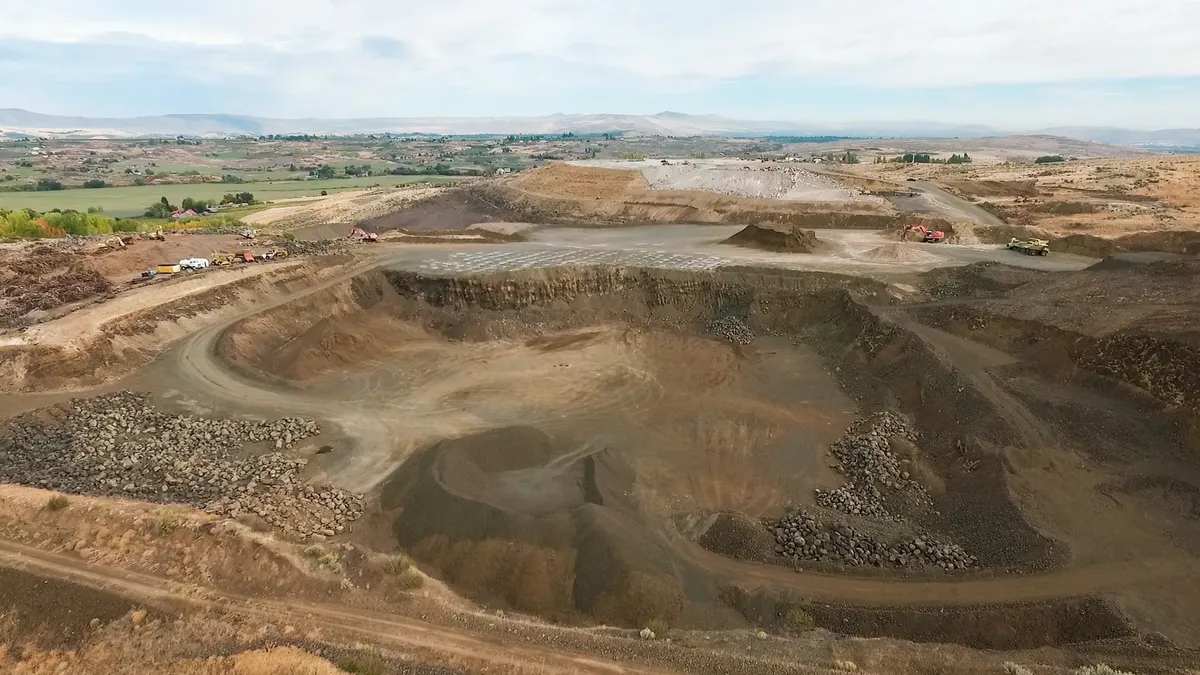Dive Brief:
- DTG Recycle recently announced the acquisition of its first landfill, the Anderson Rock and Demolition Pit in Yakima, Washington. In a "first of its kind application" in the Pacific Northwest, DTG will install a MRF onsite. All material received will be sorted to recover recyclable materials like wood and plastics.
- The company is the largest C&D commercial recycler in the Pacific Northwest. Amy Stewart, senior marketing manager for DTG, told Waste Dive via email the landfill purchase marks a major step for the company to "operate the largest MRF in the region to remove even more recyclable materials from the waste stream before final disposal."
- DTG has rapidly expanded in recent years, opening two new MRFs in 2019 alone, including one in Tacoma and another in Woodinville that also recycles plastics. Additionally, DTG has expanded its collection fleet to nearly 1,500 roll-off and recycling containers, while adding new transportation capabilities in the form of various trailers.
Dive Insight:
With the acquisition of the limited purpose landfill in Yakima, DTG is increasingly making its mark in the Pacific Northwest, where the group already dominates. The company notably includes Microsoft, the Washington State Patrol, and King County among its clients and currently employs around 300 workers. DTG has been growing for around two decades, cornering the regional market with an emphasis on recycling C&D, along with industrial and manufacturing waste.
That focus is now shifting to include the landfill space. The company, which has dubbed itself both "customer focused" and "planet obsessed," said the Anderson landfill will help DTG meet its "zero waste" goals. C&D makes up around 25% of the waste space, according to DTG.
"We recognized the landfill as a unique opportunity to capture large volumes of recyclable materials that would not otherwise have been recovered," said Stewart, who also noted the acquisition "positions DTG to expand operations into Eastern Washington."
The Anderson landfill is 255 acres and "contains a substantive active rock quarry," according to DTG. The site is permitted to receive concrete waste materials, the company said, along with dredge spoils and petroleum contaminated soils.
DTG has few major competitors in it space, although Waste Management does own several C&D waste transfer facilities in Washington. The Anderson landfill is the largest of its kind in that area, handing an advantage to DTG as the company continues to expand.
In addition to acquiring the Anderson landfill and opening two MRFs this year, DTG also acquired Recovery 1 in Tacoma last month. That facility is a waste management and C&D recycling center, giving DTG the opportunity to expand its presence in the South Puget Sound region.










